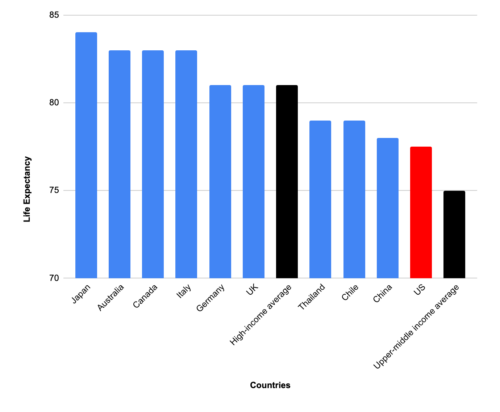Andy Grove and a Needed Conversation
By: / 07.13.2010
 The recent Bloomberg BusinessWeek cover story by former Intel CEO Andy Grove, “How to Make an American Job,” has stimulated no shortage of reaction in the blogosphere. From the even-handed and the thoughtful, to the politely skeptical and the sharply critical, bloggers and commentators have weighed in on Grove’s essay.
The recent Bloomberg BusinessWeek cover story by former Intel CEO Andy Grove, “How to Make an American Job,” has stimulated no shortage of reaction in the blogosphere. From the even-handed and the thoughtful, to the politely skeptical and the sharply critical, bloggers and commentators have weighed in on Grove’s essay.
What precipitated this running debate is Grove’s apparent suggestion that, to spur job creation and innovation, the United States should instigate a national-level industrial policy which favors some companies over others. He points to successful Asian economies as potential models. The distinguishing characteristic of the favored companies would be, what Grove asserts is the real engine of job creation, the scaling process:
Equally important is what comes after that mythical moment of creation in the garage, as technology goes from prototype to mass production. This is the phase where companies scale up. They work out design details, figure out how to make things affordably, build factories, and hire people by the thousands. Scaling is hard work but necessary to make innovation matter.
Other commentators have already pointed out that Grove perhaps focuses too much on manufacturing (and specifically technology manufacturing such as semiconductors), and that he misses the critical importance of startup firms to job creation and innovation.
I agree that the long-running lament over the loss of manufacturing jobs in the United States is overdone—much of that employment reduction has come about through productivity gains rather than offshoring. The scaling process Grove celebrates is in fact partly responsible for the loss of technology manufacturing jobs. Since 2000, industry concentration in Silicon Valley has increased dramatically in sectors such as computer equipment manufacturing and semiconductor manufacturing while employment has fallen. Just last week, my colleague Tim Kane published a report on just how much startups matter to net job creation in the United States. As Tim puts it, startups aren’t everything, they’re the only thing.
Finally, Vivek Wadhwa offers what is probably the best take on Grove’s article—Vivek is hugely knowledgeable about innovation in China and India, and offers, as others have not, actual concrete suggestions for how we can reignite economic growth in the United States.
Despite the flaws in Grove’s essay, it should not be dismissed. For one thing, he is a highly intelligent and highly successful entrepreneur who has lived through—indeed, helped shape—dramatic transformations of the U.S. economy.
Furthermore, scale companies are important to economic growth. No one can talk about the economic history of the United States without mentioning the scale companies that, at each stage of development, pioneered innovations, reduced costs and generally helped spread prosperity: Union Pacific, Standard Oil, Ford Motor, Wal-Mart, Intel, Microsoft, Google. Obviously, economic growth cannot solely be ascribed to such firms—they are only one piece of the economic ecosystem and while Grove may have overemphasized scale, he certainly was not wrong to discuss it. But the process of scaling must be contextualized: startups are essential in part because, without them, we do not even get to the scaling process. Competition helps ensure that scaling is accompanied by innovation and efficiency. Once they reach a certain level of scale, large firms depend on the acquisition of startups as a source of innovations and new jobs.
Scale firms can also be merely seen as incidents of deeper factors driving growth. After I gave a presentation on the economic contribution of high-growth firms a few months ago, an eminent economist dismissed everything by saying, “well, yes, but this is all simply explained by information technology; that’s the real story of growth.” The IT-as-the-root-of-all-prosperity argument has been popular in recent years but, as Paul Kedrosky later pointed out to me, this is a “turtles all the way down” type of argument. Behind IT is cheap energy, behind cheap energy is access to natural resources, behind natural resources … and so on. (Scale companies, in fact, could even be seen as a fertile source of knowledge for economists themselves: Thomas McCraw, inter alios, has argued that the rise of scale firms in the second half of the 1800s helped prompt the marginal revolution in economic thought.)
All of this still overlooks the most important part of Grove’s article, a point that escaped me upon first reading: “A new industry needs an effective ecosystem in which technology knowhow accumulates, experience builds on experience, and close relationships develop between supplier and customer.” The reason that the scaling process—rather than simply scale itself—is economically important is the learning-by-doing path by which it proceeds. Knowledge accumulates, innovations come and go, companies iterate back and forth—this is the messy process by which economic growth happens. If this reading is correct, Grove is claiming that the offshoring of technology manufacturing jobs threatens such learning-by-doing. In this formulation, productivity gains in manufacturing can actually undermine future cycles of learning and iterating.
The conversation Grove is trying to stimulate is worth having. It is probably too much to extrapolate technology manufacturing to the entire U.S. economy. There are certainly sectors, aside from manufacturing, in which learning-by-doing drives growth and it is not clear that those sectors have lost such capacity. Software development and certain institutions in the world of health care rely on this process. Yochai Benkler’s work can be seen as emphasizing the extent to which learning and iteration underwrites a great deal of innovation across the economy today.
But Grove’s point should be taken seriously in the sense that real barriers exist to innovation and the scaling process in many areas of the economy. Rather than seeing his article as a call for a government-driven competitiveness agenda or industrial policy, we should read it as a starting point for seeking out release valves at which small changes can be made that would release huge amounts of pent-up entrepreneurial energy. The stunted process of commercializing innovations out of universities leaps to mind as an area ripe for such analysis, as does current immigration policy. The national conversation about innovation and economic growth should be engaged in exactly this type of search.
Photo credit: jurvetson







